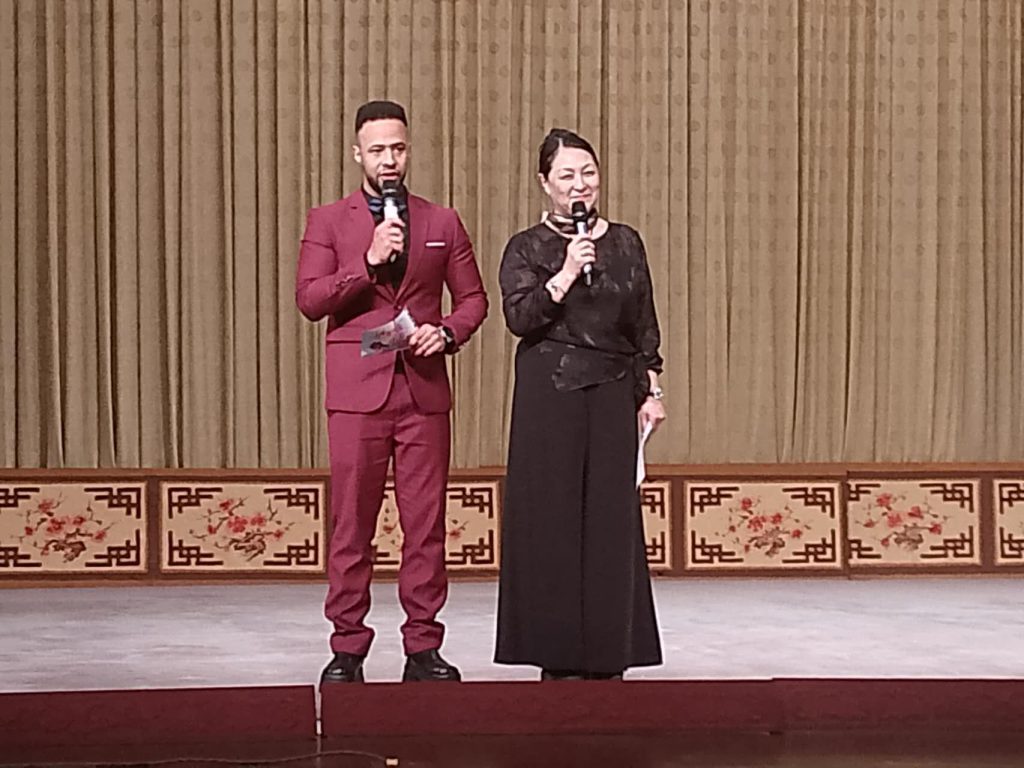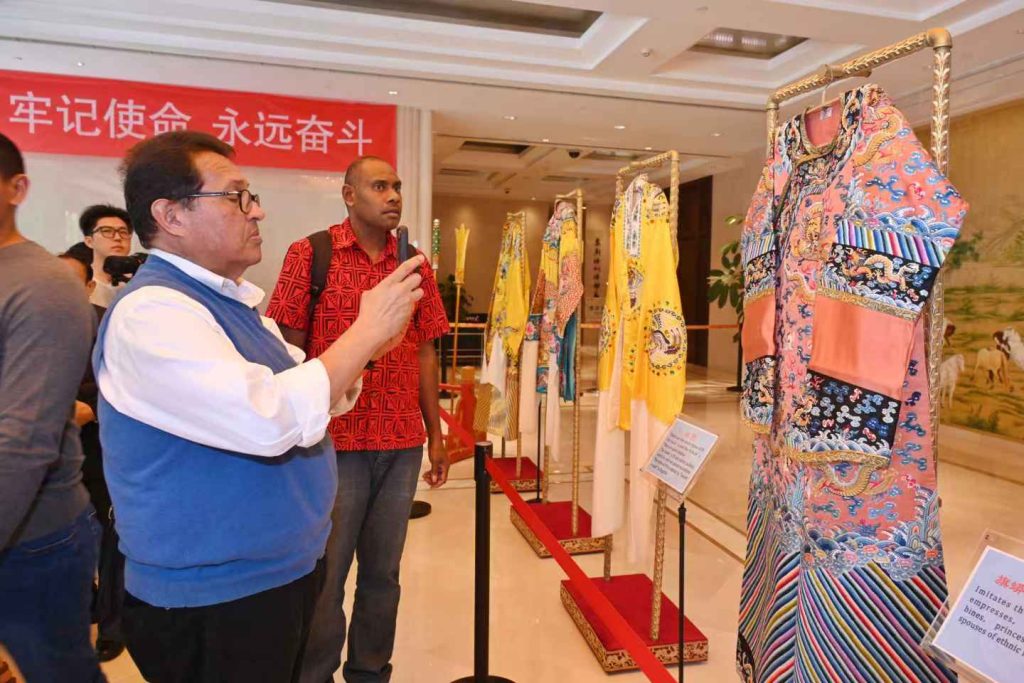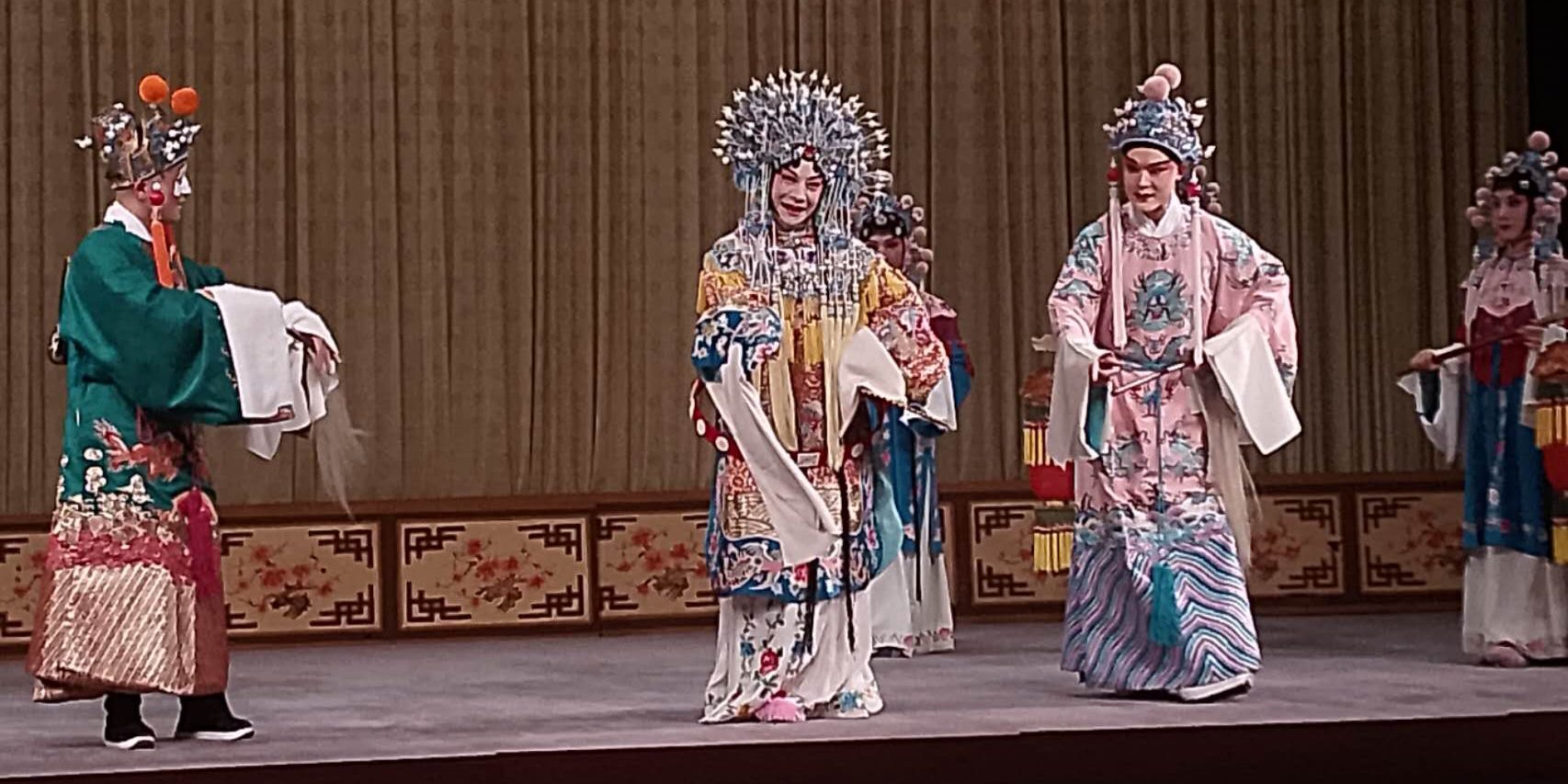THE Beijing Opera has welcomed International journalists on a study tour in China for a visit and treated them to a special performance, featuring three of its famous repertoires – The Crossroad, Heavenly Maid Scatters Flowers and Drunken Concubine.
The visit made on Monday 28 April was organised with the support of the China International Press Communication Center (CIPPC),Beijing Chaoyang District of the Communist Party of China (CPC), Foreign Affairs Office of the Chaoyang District’s People’s Government of Beijing Municipality,Chaoyang District Bureau of Culture and Tourism of the Beijing Municipality, Chaoyang Integrated Media Center, Beijing Chaoyang Jingiu Culture and Art Center and Jingiu Theatre Company of Beijing.
In his introductory remarks, CGTN (China Global Television Network) host, Egyptian Abdelaziz Salam expressed hope that after the event, the international journos would have an idea about Chinese opera, and thanked the local authourities for their support.
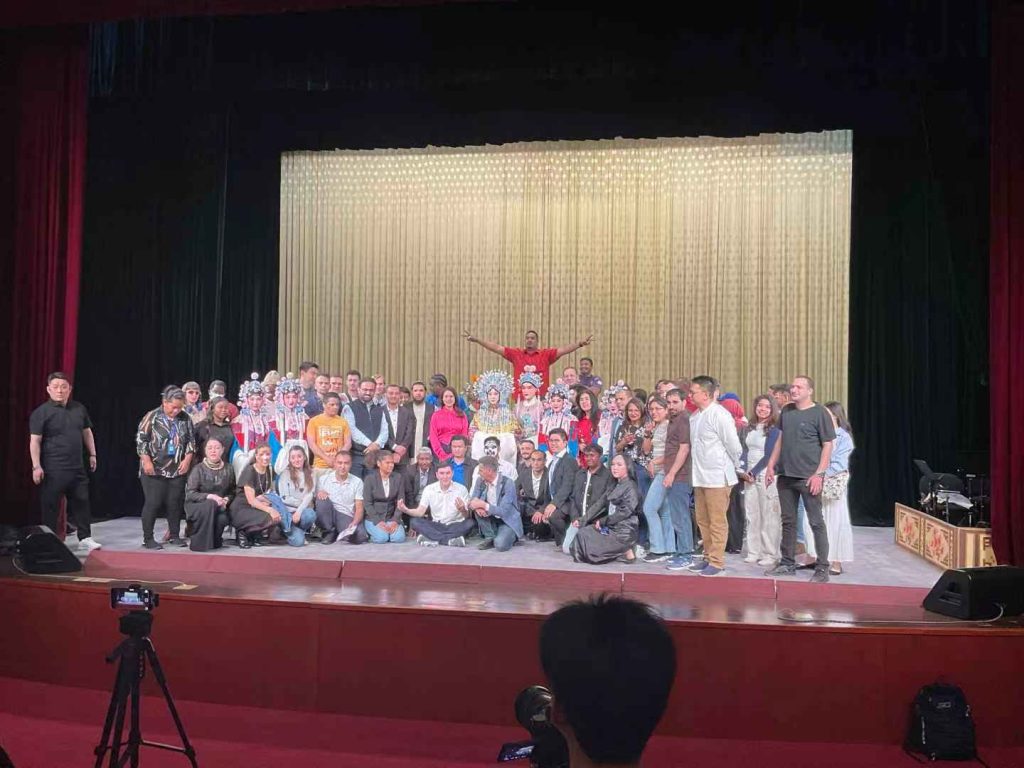
“After this performance, I thank a lot of our friends will have an idea about [Chinese] opera and how it goes, and may be some content of the performance and stories inside.
“And special thanks to our hosts, including leaders in the Chaoyang District Government and leaders in the Foreign Affairs Office for their support in inviting all of you to come and watch this performance to know more about Chinese culture.”
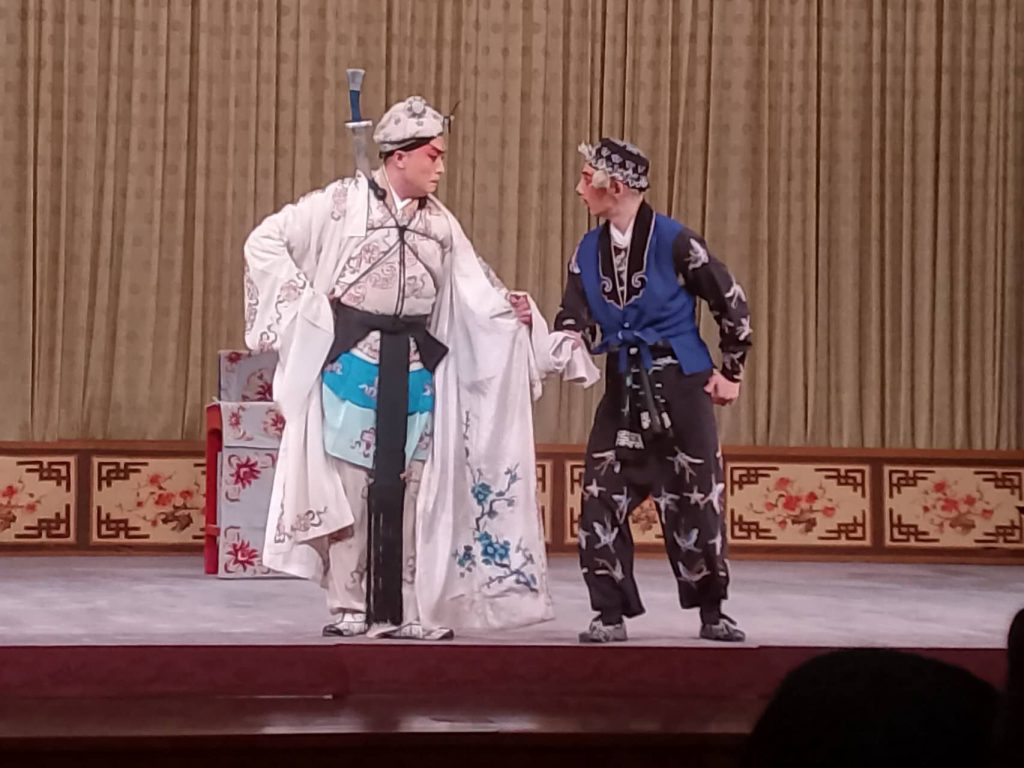
The Crossroad
This play won an award at the 1995 Paris International Drama Festival, is the most classic kung fu style repetoires with no dialog or singing. It is based on a story about a senior general of the song dynasty named Jiao Zan, who was exiled to Shaman island for killing a treacherous court official named Xie Jinwu. On his way to the island, Jiao Zan stayed at a tavern, to where his friend secretly followed him to protect him. The owner of the tavern thought Jiao Zan’s friend intended to kill Jiao Zan and fought with him. Jiao Zan appeared in time to clear the misunderstanding.
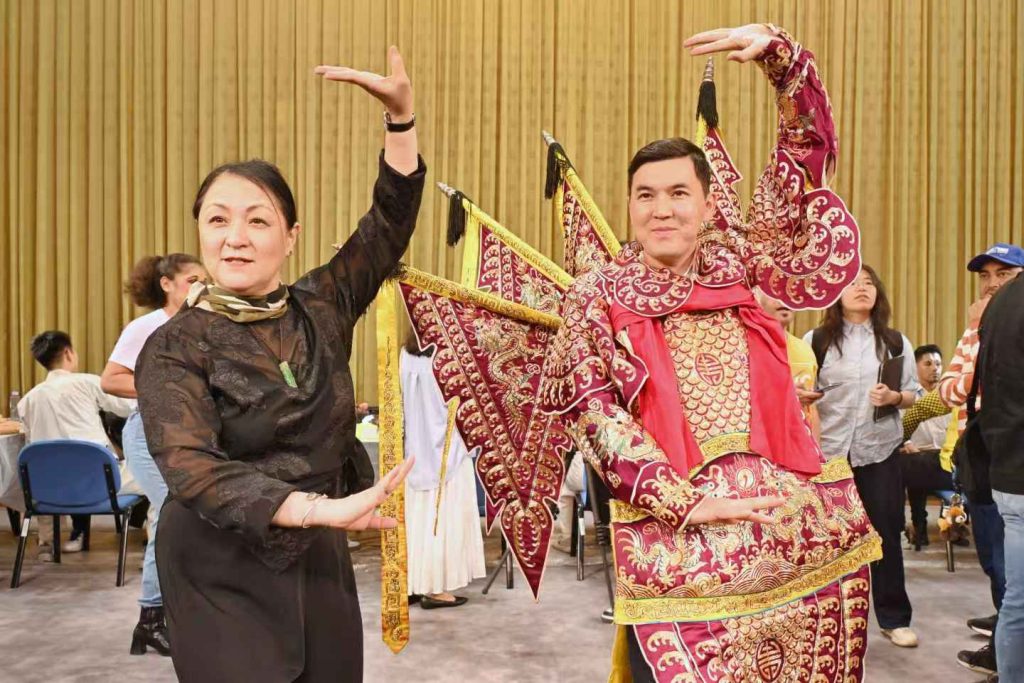
The Heavenly Maid Scatters Flowers
This is an ancient costume myth drama inspired by a Chinese painting called “The Flower Scatterer.” The painting is based on a story about a goddess who obeyed an order by Buddha to scatter blossoms over Vimalakirti, a Bhuddist student, who suffered from an eye disease due to his intensive nightly reading.
The performance of this play in Japan in 1924 caused a sensation. The long silk dance in this play was praised as ‘Oriental Ballet” by the Japanese media. During a 1956 tour of the former Union of Soviet Socialist Republic (USSR), one of the greatest ballerinas, Ulanova praised it as a “beauty of choreographic abstraction.”
The Drunken Concubine
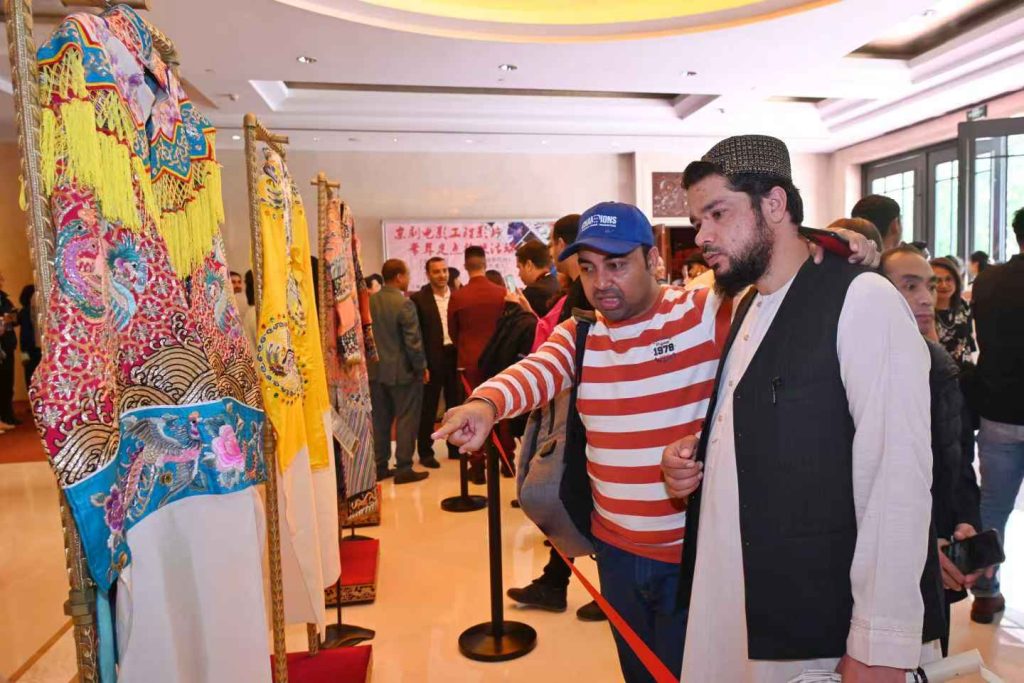
This play is about Yang Guifei, a renowned beauty and the favourite concubine of Tang Emperor Xuanzong.Yang Guifei prepared a feast in anticipation of the emperor’s arrival. She waited and waited, but the emperor did not come. When she heard that the emperor had gone to the Western Palace to see another of his concubines, she took liqour to relieve her despair and became charmingly drunk.
Its performance under the title “Drunken Beauty”in the United States in a 1930 tour has impressed Western audiences, and was dubbed “China’s La Traviata” by critics.
Though originating in the Chinese capital, the Beijing Opera has spread throughout China, becoming an important medium for the introduction and promotion of the Chinese artistic culture.
In 2010, the Beijing Opera was inscribed on the United Nations Educational, Scientific and Cultural Organisation’s (UNESCO’s) Representative List of the Intangible Cultural Heritage of Humanity.
By DELI-SHARON OSO
In Beijing, China
